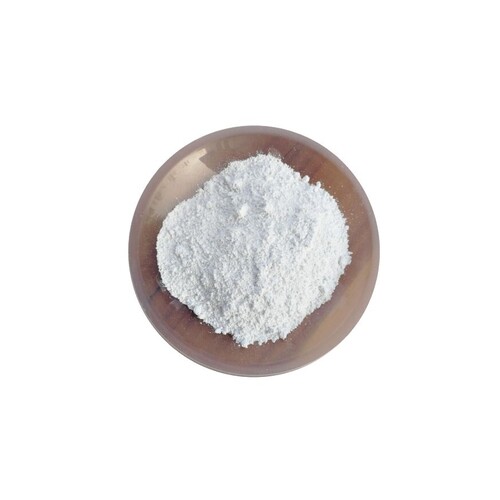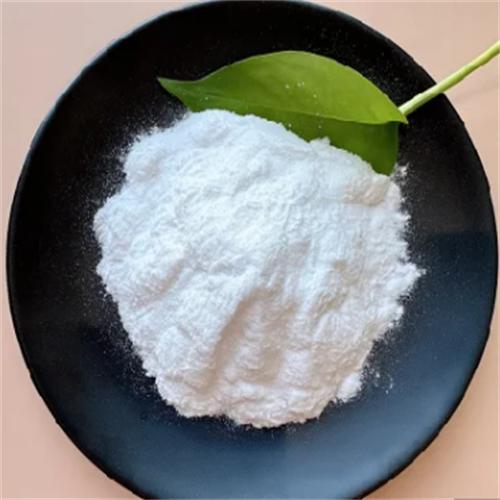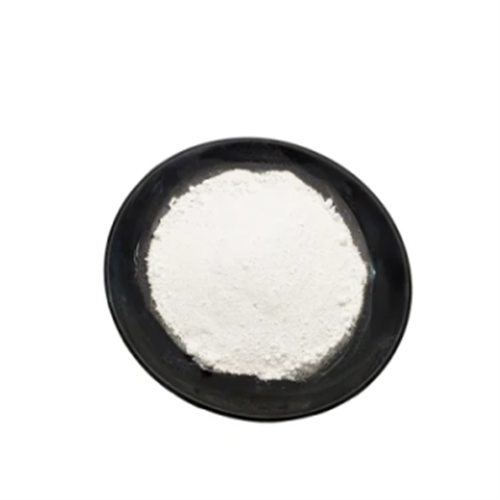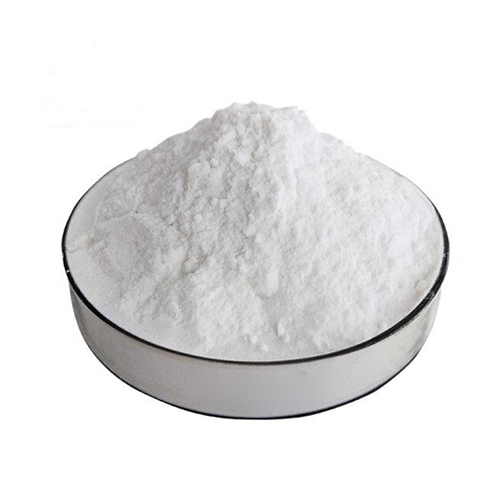- Home Page
- Company Profile
-
Our Products
- Organic Chemical Raw Materials
- Sodium dodecyl sulfate(SLS) CAS No. :151-21-3
- Pterostilbene cas 537-42-8
- Best Price glutathione
- Indium chloride 10025-82-8
- Dimethyldiallylammonium chloride acrylamide polymer
- SLES 70/ Sodium lauryl ether sulfate cas68585-34-2
- Triethylamine hydrochloride CAS 554-68-7
- Triple superphosphate CAS:65996-95-4
- paeonol Application: Health Care Products
- SDIC CAS 2893-78-9
- Pinus massoniana Lamb State: Powder
- NPE(nonylphenol polyoxyethylene ether) CAS: 9016-45-9
- Platinum dichloride 10025-65-7
- CAS 5438-41-5 NSC65667
- Poly (Diallyldimethylammonium Chloride)
- CAS 5337-93-9 4-Methylpropiophenone
- Diethyl(phenylacetyl)malonate CAS20320-59-6
- Humic Acid CAS:479-66-3
- hexadecyl trimethyl ammonium bromide cas 57-09-0 CTAB 99
- Candelilla wax CAS:8006-44-8
- DecaMethylCycloPentaSiloxane CAS : 541-02-6
- Niacinamide CAS 98-92-0
- Cocamidopropylamine Oxide CAS No.: 68155-09-9
- Isononanoic acid CAS 26896-18-4
- CAS:7783-28-0 phosphate fertilizer
- AOS CAS No. : 68439-57-6
- N-Isopropyl-1-phenylethylamine cas 19302-16-0
- -Amino anthraquinone CAS 82-45-1
- Linear alkyl benzyl sulfonic acid
- CAS19302-16-0 N-Isopropyl-1-phenylethylamine
- polyacrylamide CAS : 9003-05-8
- Diethyl(phenylacetyl)malonate CAS 20320-59-6
- Silicone Oil CAS No.: 63148-62-9
- Soap Noodles Shape: Grain
- ALES 70 / AESA Cas 32612-48-9 Ammonium Lauryl Ether Sulfate
- Ammonium Lauryl Sulfate CAS 2235-54-3 Lsa70%
- Europium chloride CAS10025-76-0
- CAS110-17-8 Fumaric acid
- CALCIUM IODATE CAS: 10031-32-0
- Triethylamine hydrochloride 554-68-7
- N-Dimethylpropionamide DMPA CAS 758-96-3
- N-Dimethylpropionamide DMPA CAS 758-96-3
- Best Supplier Polyacrylamide CAS 9003-05-8
- Lithium nitrate CAS 7790-69-4
- na3po4 Trisodium phosphate CAS 7601-54-9
- Polymaleic acid
- Sodium tungstate CAS:13472-45-2
- Diafenthiuron CAS:80060-09-9
- Sodium Laureth Sulfate
- Diafenthiuron CAS 80060-09-9
- SLES CAS :68585-34-2
- Decamethylcyclopentasiloxane cas541-02-6
- Hot sell Sugar
- Water Treatment Coagulant PAM CAS:9003-05-8/Polyacrylamide Acrylamide Resin
- Polyoxyethylene Lauryl Ether
- Dodecylbenzenesulphonic acid cas 27176-87-0
- Quaternium-seven three
- 4-Butylresorcinol Skin Brightening CAS 18979-61-8
- (2-Bromoethyl)benzene CAS103-63-9
- HPMC CAS : 9004-65-3
- 4-Hydroxy TEMPO / Polymerization Inhibitor 701 CAS 2226-96-2
- Sodium lauryl ether sulfate
- -Amino anthraquinone CAS 82-45-1
- Diethylene glycol monobutyl ether (DB) CAS No. : 8001-54-5
- Methoxypropanol CAS :139-33-3
- Isobutyraldehyde Organic Synthetic Material
- Isopropanol CAS : 67-63-0
- Sodium TungstateCAS:13472-45-2
- Cocamide DEA CDEA no glycerol CAS NO.: 68603-42-9
- CAS 9003-04-7 Sodium Polyacrylate
- LABSA 96 /Linear Alkylbenzene Sulfonic Acid CAS 27176-87-0
- Nicotinamide mononucleotide cas1094-61-7
- Dodecylbenzenesulphonic acid CAS : 27176-87-0
- Potassium sodium tartrate tetrahydrate CAS 6381-59-5
- betaine CAS No.: 497-76-7 Formula: C12h16o7
- Platinum dichloride CAS10025-65-7
- polyacrylamide CAS : 9003-05-8
- Pterostilbene CAS :537-42-8
- 2-Chloro-1-(4-methylphenyl)-1-propanone CAS: 69673-92-3
- Succinic Acid
- Fumaric Acid Industrial And Food
- Tetrabutylammonium Hydroxide 30-Hydrate
- 4-Hydroxy TEMPO
- Isononanoic Acid
- Triethylamine Hydrochloride
- Potassium Sodium Tartrate Tetrahydrate
- N-Dimethylpropionamide DMPA
- Amino Anthraquinone
- Linear Alkylbenzene Sulphonic Acid
- Anionic Surfactant Sodium Dodecyl Benzene Sulfonate
- Sodium carboxymethyl cellulose
- Low temperature bleach Tetraacetylethylenediamine
- Surfactant LDAO
- Glycerol CAS 56-81-5
- Methylene Blue trihydrate
- Potassium Phosphate Monobasic
- Chlorobenzene CAS 108-90-7
- Chloroauric acid
- Coconut oil acid diethanolamine
- Surfactant Cocoyl amide propyldimethyl glycine
- Soap noodles
- Surfactant Amides, coco, N-[3-(dimethylamino)propyl], N-oxides
- Silicone oil
- DECYL GLUCOSIDE
- Surfactant Polyquaternium-7
- Sodium acetate
- Nutrition Enhancers 1-Octacosanol
- Pyruvic acid
- Sodium alginate
- MALT EXTRACT
- Chemical Reagent Cesium formate
- D-chiro-inositol CAS 643-12-9
- Astaxanthin CAS 472-61-7
- Preservative Hexahydro-1,3,5-tris(hydroxyethyl)-s-triazine
- Sodium octanoate
- CARBOXYMETHYLCELLULOSE SODIUM SALT
- Surfactant Polyoxyethylene lauryl ether
- Soy Wax
- Lithium carbonate
- Lithium chloride CAS 7447-41-8
- Lithium sulfate CAS 10377-48-7
- Lithium phosphate
- Lithium hydroxide CAS 1310-65-2
- Lithium acetate dihydrate CAS 6108-17-4
- LITHIUM METASILICATE CAS 10102-24-6
- Anionic Surfactant Sodium dodecyl sulfate CAS 151-21-3
- Ethanol Ethyl Alcohols
- (-)-Epigallocatechin gallate CAS 989-51-5
- 1-Hydroxyethylidene-1,1-diphosphonic acid
- tert-Butyl methyl ether CAS 1634-04-4
- Trichloroisocyanuric acid CAS 87-90-1
- Benzalkonium Chloride CAS 63449-41-2
- scale and corrosion inhibitor 2-Phosphonobutane-1,2,4-tricarboxylic acid CAS 37971-36-1
- Amino tris(methylene phosphonic acid)
- 2-Acetyl Pyrrole CAS 1072-83-9
- Benzalkonium chloride
- 2-Phosphonobutane-1,2,4-tricarboxylic acid
- Ethylenebis(nitrilodimethylene)tetraphosphonic acid
- Diethylenetriaminepenta(methylenephosphonicacid) sodium salt
- HDTMP hexapotassium salt
- Hydroxyphosphono-acetic acid
- Bis(hexamethylenetriaminepenta(methylenephosphonic acid))
- Sodium amino-tris(methylenesulphonate)
- (1-Hydroxyethylidene)bis-phosphonic acid tetrasodium salt
- Etidronate disodium
- 2-Acrylamido-2-methylpropanesulfonic acid-acrylic acid copolymer
- Terephthalic acid
- Sodium Of Polyaspartic Acid
- Poly(acrylic acid)
- Polyacrylamide CAS 9003-05-8
- Polyoxirane-2,3-dicarboxylic acid
- Tributyltetradecylphosphonium chloride
- Dodecyldimethylbenzylammonium chloride
- Sodium Dimethyldithiocarbamate
- Isothiazolinones CAS 26172-55-4
- 2-Methyl-4-isothiazolin-3-one CAS 2682-20-4
- 1,2-Benzisothiazol-3(2H)-one CAS 2634-33-5
- 2-Octyl-2H-isothiazol-3-one CAS 26530-20-1
- Bifidobacterium longum lysate
- 4-Butylresorcinol cas 18979-61-8
- Tranexamic Acid cas 1197-18-8
- ECTOIN cas 96702-03-3
- 2'-Hydroxy-4'-methoxyacetophenone2'-Hydroxy-4'-methoxyacetophenone cas552-41-0
- Pine bark extract cas 133248-87-0
- 4-Chloro-3-methylphenol CAS 59-50-7
- Sodium lauryl polyoxyethylene ether sulfate cas 9004-82-4
- NONOXYNOL 9
- 4-Chloro-3,5-dimethylphenol CAS 88-04-0
- Fatty alcohol polyoxyethylene ether cas 111-09-3
- 1-Bromo-3-chloro-5,5-dimethylhydantoin CAS 16079-88-2
- Sodium Pyrithione CAS 3811-73-2
- 2,2-Dibromo-2-cyanoacetamide CAS 10222-01-2
- Zinc chloride CAS 7646-85-7
- Tetrakis(hydroxymethyl)phosphonium chloride
- 2-Butyl-1,2-benzisothiazolin-3-one CAS 4299-07-4
- 2,2-Dibromo-2-nitroethanol CAS 69094-18-4
- 4,5-Dichloro-2-octyl-isothiazolone CAS 64359-81-5
- Thiabendazole CAS 148-79-8
- Carbendazim CAS 10605-21-7
- Diuron CAS 330-54-1
- Chloroacetamide CAS 79-07-2
- Methylene Dithiocyanate CAS 6317-18-6
- N,N'-Dimorpholinomethane CAS 5625-90-1
- Iodopropynyl Butylcarbamate CAS 55406-53-6
- 2-(Thiocyanatomethylthio) Benzothiazole CAS 21564-17-0
- Sodium hydroxymethylglycinate CAS 70161-44-3
- 5-Bromo-5-nitro-1,3-dioxane CAS 30007-47-7
- Caprylohydroxamic Acid CAS 7377-03-9
- Dimethyloldimethyl Hydantoin CAS 6440-58-0
- Imidazolidinyl Urea CAS 39236-46-9
- 1,2-Pentanediol CAS 5343-92-0
- Zinc pyrithione CAS 13463-41-7
- Mercaptoacetic Acid CAS 68-11-1
- Bronopol CAS 52-51-7
- Tebuconazole CAS 107534-96-3
- Glutaraldehyde CAS 111-30-8
- 1H-Benzotriazole CAS 95-14-7
- l-Glutamic acid, N-coco acyl derivs., disodium salts
- ISONONYL ISONONANOATE CAS 42131-25-9
- CetearylGlucoside CAS 246159-33-1
- Sodium lauroylsarcosinate CAS 137-16-6
- 5-Methyl-1H-benzotriazole CAS 136-85-6
- Tolyltriazole CAS 29385-43-1
- POTASSIUM LAURATE
- Triethanolamine CAS 102-71-6
- Tranexamic Acid CAS No.: 1197-18-8
- 2-Chloro-1-(4-methylphenyl)-1-propanone CAS 69673-92-3
- Ecdoine CAS No.: 96702-03-3
- Stearic acid CAS No.: 57-11-4
- arbutin CAS : 497-76-7
- Cocamidopropylamine Oxide
- Ecdoine CAS: 96702-03-3
- Palmitoyl Tripepitde-5 CAS : 623172-56-5 Formula : C37h67f6n5o9
- Dodecylbenzenesulphonic acid CAS No.: 27176-87-0
- DecaMethylCycloPentaSiloxane CAS: 541-02-6
- HPMC CAS No. : 9004-65-3
- Methoxypropanol CAS : 107-98-2 Formula: C9h9clo
- Benzalkonium chloride (ADBAC) CAS No. : 8001-54-5
- AOS CAS : 68439-57-6
- Top Quality Glycerol CAS No.: 56-81-5
- Quaternium-73 CAS No : 9003-05-8
- Best Price Polyquaternium-7 CAS No : 26590-05-6
- betaine CAS No : 61789-40-0
- Nonylphenol Ethoxylate(NP-10) CAS No.: 14409-72-4
- Coconutt Diethanol Amide CAS : 68603-42-9
- Triethanolamine (TEA 99%) CAS No.:102-71-6
- Potassium Phosphate Monobasic CAS : 7778-77-0
- Primary Alcobol Ethoxylate CAS : 111-09-3
- 4-Butylresorcinol CAS : 18979-61-8
- Glycerol CAS : 56-81-5
- SLES CAS : 68585-34-2
- Stearic acid CAS57-11-4
- Paraffin CAS No : 8002-74-2
- Quaternium-73 CAS15763-48-1
- Polyquaternium-7 CAS26590-05-6
- DecaMethylCycloPentaSiloxane CAS .: 541-02-6
- Pinus massoniana Lamb Food, Health Care Products
- Chemicals Personal Care Cocamidopropyl Betaine
- SCI 85 sodium cocoyl isethionate 85 CAS 61789-32-0 cosmetic grade
- Methoxypropanol CAS : 107-98-2
- Yellow Liquid Nonylphenol Ethoxylate Np 10
- Nonoxynol 9 Cas 14409-72-4
- Ethylenediaminetetraacetic Acid EDTA CAS 60-00-4
- N-Methyldiethanolamine MDEA CAS 105-59-9
- Isopropyl Alcohol IPA CAS 67-63-0
- Hydroxypropyl methyl cellulose Hpmc cas 9004-65-3
- High purity Polyvinyl Alcohol pva 9002-89-5
- Redispersible Polymer RDP CAS 24937-78-8
- Ammonium Laureth Sulfate CAS 32612-48-9
- Linear Alklybezene Sulfonates CAS 126-66-9
- SODIUM COCOYL GLUTAMATE CAS 68187-32-6
- High Purity Cesium Bromide CAS 7787-69-1
- Sodium cocoyl isethionate SCI CAS 61789-32-0 80% flake 85% powder
- Construction grade Hydroxyethyl Cellulose HEC 9004-62-0
- Sodium Methyl Cocoyl Taurate Cas 12765-39-8
- Stearyl Methacrylate CAS 32360-05-7 SMA
- Ca(oh)2 Calcium Hydroxide hydrated Lime Cas 1305-62-0
- cosmetic grade squalene Cas 111-02-4
- Chemical Reagents CAS 50-99-7 D-Glucose Anhydrous
- Pinitol Oil Cas 8002-09-3
- D(+)-Glucose
- Pine Needle Oil Pinitol Oil CAS 8002-09-3
- High Purity 99.9% Propanon e/Aceton e CAS 67-64-1
- Liquid Alkaline amylase CAS 9000-85-5
- Cosmetic Raw Material Oligopeptide-10 for Anti-Acne and Anti-Microbial CAS 466691-40-7
- Behentrimonium Methyl Sulphate BTMS CAS 81646-13-1
- Anti-Aging Cosmetics Ingredients 99% Purity Syn-Ake Peptide CAS 823202-99-9
- D-CAMPHOR CAS 464-49-3
- High Purity Propyle ne Glycol CAS 57-55-6
- Dioctyl terephthalate DOTP CAS 6422-86-2
- Food additives Sodium Stearate CAS 822-16-2
- Ceramic Dyeing Co3o4 Cobalt Oxide CAS 1307-96-6
- High purity Citric Acid Monohydrate CAS 77-92-9
- Wood Pellets
- Flame retardant 99% Powdered antimony trioxide CAS 1309-64-4
- High purity 99.5% cas 119-61-9 BP Benzophenone
- Eusolex 9020 Sunscreen Avobenzone Cas 70356-09-1
- 99% Choline chloride cas 67-48-1
- 99% Purity Lyophilized Powder 5mg 10mg vials Peptide Weight Loss Peptides
- 99% cas 6020-87-7 pure creatine monohydrate powder
- Potassium Hydroxide KOH CAS 1310-58-3
- 99% Aluminium phosphate cas 7784-30-7
- Corrosion inhibitor PBTCA 50% CAS 37971-36-1 2-Phosphonobutane-1,2,4-tricarboxylic acid
- Sodium Ethylxanthogenate Cas 140-90-9
- 19%-21% polyferric sulfate products CAS 10028-22-5
- Sodium Ethyl Xanthate cas 140-89-6
- Good quality Sodium Isopropyl Xanthate cas 140-93-2
- Mining Chemicals Sodium Butyl Xanthate CAS 141-33-3
- xanthate Sodium Isobutyl Xanthate 90% CAS 25306-75-6
- 99.99% nano aluminum oxide powder Al2O3 1344-28-1
- Ammonium Chloride Granular 12125-02-9
- SODIUM DIISOBUTYL DITHIOPHOSPHATE C4H9O)2PSSNa CAS:53378-51-1
- CAS 1344-43-0 MnO Manganese II Oxide Manganese Oxide
- Factory Supply Polyepichlorohydrin epoxy Resin CAS 24969-06-0
- Sodium ethylxanthogenate
- sodium O-isopentyl dithiocarbonate
- Alpha-Olefin Sulfonate Aos 92% Powder CAS 68439 -57-6
- CAS 107-98-2 Industrial Grade Propylene Glycol Monomethyl Ether 99.9% Pm
- Hydroxypropyl Methyl Cellulose CAS 9004-65-3 HPMC
- SODIUM ALKYL HYDROXIMIC ACID
- Salicylhydroxamic acid
- oxalic acid 99.6% industrial grade CAS 144-62-7
- CAS 19040-44-9 Disodium Lauryl Sulfosuccinate
- Magnesium sulfate heptahydrate cas 10034-99-8
- 99% Purity Hair Treatment Ingredient CAS 68238-35-7 Keratin Powder
- Surfactant liquid simethicone cas 8050-81-5
- Paraformaldehyde
- Clopidol
- High Purity La2O3 Lanthanum Oxide CAS 1312-81-8
- Aluminum sulfate octadecahydrate CAS 7784-31-8
- CAS 1303-86-2 Boron Oxide BO Powder
- CAS 15217-42-2 Sodium 1,2,3-Benzotriazole (BTA-Na)
- Methylene Blue trihydrate
- Creatine monohydrate
- Alpha Lipoic Acid
- Vitamin K2
- Arbutin
- Kojic acid
- na2so4 SSA Sodium Sulfate Sodium Sulphate Anhydrous CAS 7757-82-6
- Sodium Metasilicate Anhydrous CAS 6834-92-0
- Poly Aacrylic Acid-Maleic Acid Copolymer CAS 52255-49-9
- Chemical Optical Brightener DMS CAS 16090-02-1 71
- Sodium dodecyl benzene sulfonate SDBS CAS 25155-30-0
- Kojic acid dipalmitate
- chemical resistance raw material Rebaudioside A58543-16-1
- Industrial Grade Alkaline Protease cas 9014-01-1
- Tranexamic Acid
- L-Tryptophan Powder CAS 73-22-3
- Nicotinamide
- Asiaticoside
- Ammonium Lauryl Sulfate K12a CAS 2235-54-3
- Dioctyl Phthalate DOP CAS 117-84-0
- 200 mesh Xanthan Gum CAS 11138-66-2
- Mica Powder Pigment for Soap Epoxy Resin Paint CAS 12001-26-2
- colophony CAS 8050-09-7 gum rosin
- N,N-dimethylacetamide Dmac Cas 127-19-5
- Magnesium Chloride Mgcl2 CAS 7786-30-3
- Phenolic resin CAS 9003-35-4
- bleaching earth for oil decolorization CAS 70131-50-9
- Petrolatum
- Diethanolisopropanolamine DEIPA CAS 6712-98-7
- Di Octyl Phthalate Epoxidized Soybean Oil(esbo) CAS 117-84-0
- Dioctyl phthalate DOP CAS 117-81-7
- Phosphoric acid
- Medium Chain Triglycerides mct CAS 538-24-9
- Polysorbate 20 60 80 Cas 9005-65-6
- Ultraviolet absorber UV-360 CAS 103597-45-1
- UV Stabilizer UV 1084 CAS 14516-71-3
- Estradiol Valerate CAS 979-32-8
- Pullulan
- Isopropyl alcohol IPA CAS 67-63-0
- monosodium phosphate MSP 98% CAS 7558-80-7
- PU foam AC blowing agent CAS 523-77-2
- FMES 70% Fatty Methyl Ester Sulphonates CAS 71338-19-2
- Citric Acid Monohydrate CAS 5949-29-1
- Trisodium Citrate dihydrate CAS 6132-04-3
- Poly Aacrylic Acid-Maleic Acid Copolymer CAS 52255-49-9
- Ethylenediaminetetraacetic acid tetrasodium salt EDTA CAS 13235-36-4
- Lauryl Hydroxysultaine Lhsb CAS 13197-76-7
- Modified Silicone Coating Defoamer CAS 87435-55-0
- Ammonium Polyphosphate CAS 68333-79-9
- Dimethyl terephthalate
- 2-Butene-1,4-diol
- Acetylsalicylic acid CAS 50-78-2
- Phosphorous Acid CAS No. 13598-36-2
- 2-CARBOMETHOXY-3- TROPINONE
- gamma alumina oxide powder CAS 1344-28-1
- agrochemical adjuvants wetting agent CAS No. 577-11-7
- Plant Growth Regulation CAS 479-66-3
- 1-Octanol
- Polyethylene Glycol
- Top Quality Ferrocene CAS 102-54-5
- D-Tartaric acid CAS 147-71-7
- Benzoic acid CAS 65-85-0
- Sebacic acid CAS 111-20-6
- MCC Microcrystalline Cellulose Powder cas 9004-34-6
- 1,4-Butenediol CAS 110-64-5
- 99% High Purity Adipic acid CAS 124-04-9
- Zinc Stearate Powder cas 557-05-1
- 4'-Methylpropiophenone CAS 5337-93-9
- Valerophenone CAS 1009-14-9
- Magnesium stearate Cas 557-04-0
- calcium carbonate CAS 471-34-1
- (S)-3-Hydroxy-gamma-butyrolactone CAS 7331-52-4
- DL-Menthol Crystal CAS 89-78-1
- CAS 1205-17-0 3-Methyl-3-(3,4-metylenedioxyphenyl)propanal
- 1,3-Butanediol cas 107-88-0
- 5-Bromo-1-pentene Cas 1119-51-3
- synthetic material 3-(1-Naphthoyl)indole CAS 109555-87-5
- N-Methylformamide C2H5NO CAS 123-39-7
- CAS 24634-61-5 food grade potassium sorbate
- Sodium benzoate powder CAS 532-32-1
- High Quality Sodium Edetate CAS 64-02-8
- Sorbic Acid CAS 110-44-1
- Isophthalic acid CAS 121-91-5
- 4-tert-Butylcatechol Cas 98-29-3
- DL-Menthol
- (S)-3-Hydroxy-gamma-butyrolactone
- 2-Butene-1,4-diol
- Pure 99% Acriflavine Hydrochloride CAS 8063-24-9
- Closantel Sodium CAS 61438-64-0
- Nitazoxanide CAS 55981-09-4
- Bethanechol Chloride CAS No. 590-63-6
- Inosine Pranobex Powder Isoprinosine CAS 36703-88-5
- Pralidoxime Iodide CAS 94-63-3
- 4-Aminobenzamidine Dihydrochloride CAS 2498-50-2
- 2, 2'-Biphenol CAS 1806-29-7
- 4'-Methylpropiophenone
- Eucalyptus oil
- 3, 5-Diiodosalicylic Acid CAS 133-91-5
- Ascorbic Acid
- Atropine Sulfate Atropinesulfate CAS 55-48-1
- CAS 51-15-0 Pralidoxime Chloride
- Aminophylline CAS 317-34-0
- 99% Etamsylate CAS 2624-44-4
- Butaphosphan/Butaf CAS 17316-67-5
- CAS 418541-41-0 Sodium Nuo Kasu Powder
- Diethyl 1, 4-Dihydro-2, 6-Dimethyl-3, 5-Pyridinedicarboxylate CAS 1149-23-1
- More Than 99% Content Fluralaner CAS: 864731-61-3
- Raw Material Powder CAS 58-63-9 Inosine
- CAS 91296-87-6 Sarafloxacin Hydrochloride Sarafloxacin HCl
- Pharmaceutical Raw Materials Sulfamonomethoxine Powder CAS 1220-83-3
- Veterinary Pharmaceutical Raw Materials Sulfamonomethoxine Sodium CAS: 38006-08-5
- CAS 21791-94-6 Sodium (+) -10-Camphorsulfonate
- CAS 56-65-5 Adenosine Triphosphate/ATP Powder
- Pharmaceutical Grade Praziquantel CAS 55268-74-1
- Clinafloxacin Powder CAS 105956-97-6
- 99% Purity Diprophylline CAS 479-18-5
- 99% Purity API Nitazoxanide CAS 55981-09-4
- 3-(1-Naphthoyl) indole
- Polypropylene
- Ectoine
- Isododecane
- Rosin
- Inorganic Chemical Raw Materials
- Triple superphosphate 65996-95-4
- Potassium chloride CAS7447-40-7
- STPP cas7758-29-4 sodium tripoly phosphate food grade 94
- Anhydrous Sodium Sulfate 15124-09-1
- Ammonium Chlorid CAS12125-02-9
- potassium pyrophosphate CAS 7320-34-5
- Sodium metasilicate
- Sodium chloride
- CAS:10124-56-8 SHMP 68 sodium hexametaphosphate
- Isononanoic acid
- Barium Nitrate
- Lithium Dichromate
- Platinum Dichloride
- Europium Chloride
- Indium Chloride
- Calcium Iodate
- Sodium silicate
- Na2co3 Sodium Carbonate
- SODIUM METASILICATE PENTAHYDRATE
- Sodium percarbonate
- Sodium sulfate
- Sodium tripolyphosphate
- Ferrous Saccharose
- Anionic Surfactant AOS 38% Alpha Olefin Sulphonat
- Meta-Cresol 99% in Pharmaceutical Intermediates CAS 108-39-4
- Sodium bromate
- Silver iodide
- Sodium molybdate dihydrate
- Lithium chloride
- Ammonium chloride
- Magnesium oxide
- Sodium sulfide
- Sodium thiocyanate
- Potassium thiocyanate
- Hot sell Cryptolepine
- LITHIUM IRON PHOSPHATE CARBON COATED
- Sodium tripolyphosphate cas 7758-29-4
- Potassium pyrophosphate cas 7320-34-5
- Potassium pyrophosphate cas 7320-34-5
- Sodium chlorite
- Sodium hypochlorite Cas 7681-52-9
- Sodium Bromide CAS 7647-15-6
- Indium chloride CAS10025-82-8
- High Purity Tungsten Powder
- Chinese Factory Provides Tetrabutylammonium Hydrogen Sulfate CAS 32503-27-8
- NPK fertilizer
- synthetic material Potassium carbonate K2CO3 CAS 584-08-7
- Lithium carbonate
- Fertilizer Raw Materials
- Pharmaceutical Intermediate
- Water Soluble 20mg /40mg/30mg for Cat Fipv / Fip Cat
- 2-Diacetamide-N-2,6-diamidylacetamide hydrochloride CAS 73-78-9
- Ethyl para-aminobenzoate CAS94-09-7
- CAS16595-80-5 Levamisole HCL
- (2-Bromoethyl)benzene cas 103-63-9 2
- Levamisole CAS 14769-73-4
- Dissociation Anesthetic Tiletamine Hydrochloride
- PDE5 Inhibitor
- NSC65667 Eactivates EGR1
- Cicloxilic Acid Bioactive Reagent
- 3-4-5 Trimethoxybenzaldehyde Intermediates
- Cefepime Impurity A
- Dimethyl Sulfoxide DMSO CAS 67-68-5
- Heparin sodium
- Phoxim 14816-18-3
- Hydroxychloroquine Sulphate
- semax
- Remdesivi 1911578-98-7/1191237-69-0 Raw Powder Cat FIP GS-441 GS441 GS441524 for Cat FIPV Injection
- Pharmaceutical Sermaglutide CAS: 910463-68-2 for Weight Loss
- Melatonine
- Resveratrol CAS 501-36-0
- 5-Methoxytryptamine
- Industrial Chemical
- Boric Acid Flakes-Chunks
- N-Methylformamide (NMF)
- Levamisole HCL
- Cosmetic Grade 1-Hexadecanol - C16 Cetyl Alcohol
- Kojic Acid
- Aluminium Fluoride
- Succinic Acid
- Tetramisole HCl
- Sodium Tungstate
- Eugenol Liquid
- Piroctone Olamine
- Chondroitin Sulfate
- Cellulose Acetate Tow
- Phosphoric Acid
- Musk Ketone
- Polyacrylamide Acrylamide-PAM
- lithium fluoride
- Skin Whitening Cosmetic Grade CAS 408-35-5 Raw Material 99% Sodium Palmitate
- High Quality Pharmaceutical Intermediate Dimethyl Sulfoxide DMSO CAS 67-68-5
- Hot Sale Raw Material Organic 99.99% Purity DMSO Dimethyl Sulfoxide CAS 67-68-51
- High Purity Tungsten Powder
- NaOH
- calcium carbonate
- Isopropyl Palmitate CAS 142-91-6
- Benzoic Acid, C12-15-Alkyl Esters CAS 68411-27-8
- BENZOYL HYDROXIMIC ACID
- Cosmtic Peptides Hexapeptide-9/Collaxyl CAS 1228371-11-6
- Hydrolyzed Collagen Peptides Powder1228371-11-6
- Graphite CAS 7782-42-5
- Sodium tungstate dihydrate
- Mercury(II) sulfide
- Hexamethylenetetramine
- Mercury Element
- Organic Chemical Raw Materials
- Contact Us
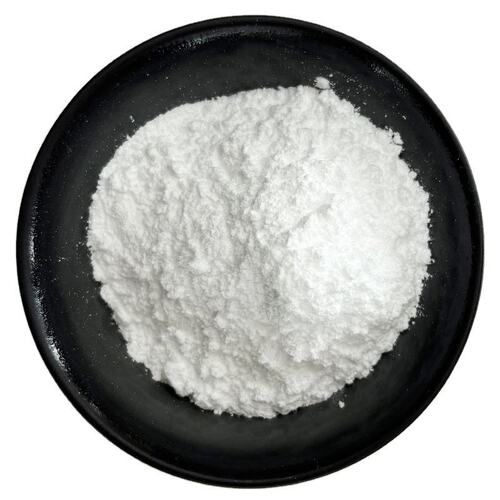
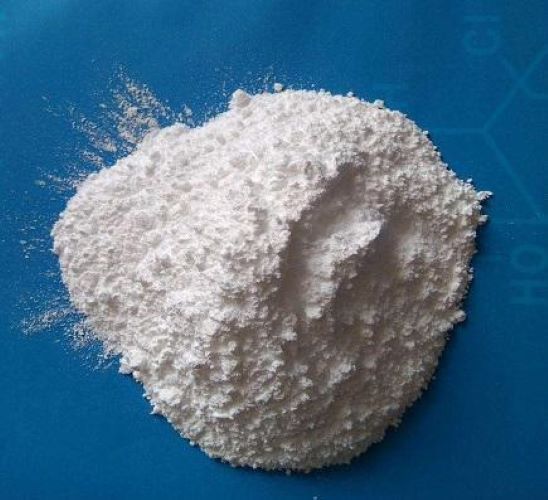
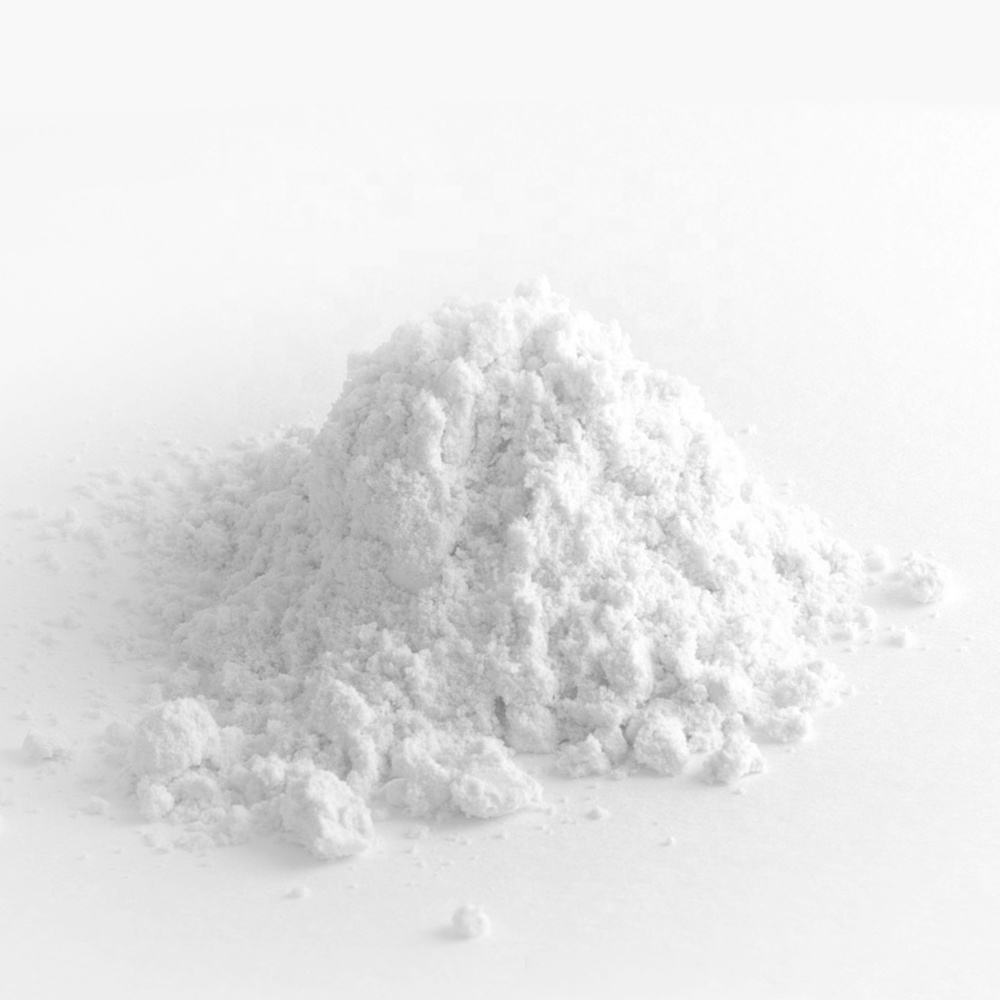
Potassium pyrophosphate cas 7320-34-5
7 USD ($)/Kilograms
Product Details:
- HS Code 28353990
- Physical Form Powder
- Storage Other
- Molecular Weight 330.336522
- Smell Other
- Melting Point 1300 C
- Usage 1. It is mainly used in cyanide-free electroplating, replacing sodium cyanide as a complexing agent for electroplating. It is also used as a pre-treatment agent for electroplating and a pyrophosphate electroplating solution. It is used to prepare detergent components for clothing, metal surface cleaning agents and bottle cleaning components, and additives for various cleaning agents. It is used as a clay dispersant in the ceramic industry, a dispersant and buffer for pigments and dyes. It is used in the bleaching and dyeing industry to remove a small amount of trivalent iron ions in water to improve the quality of bleaching and dyeing. 2. Analytical reagents, hydrogen peroxide stabilizer, electroplating, soap filler. 3. Used for cyanide-free electroplating, dyeing, refined clay, etc. 4. Used as analytical reagents, hydrogen peroxide stabilizers and fillers for soaps 5. In the food industry, it is used as an emulsifier, texturizer, chelating agent, and also as a raw material for alkaline water for flour products. It is often used in combination with other condensed phosphates, and is usually used to prevent the formation of struvite in canned seafood, prevent canned fruit from changing color, increase the expansion of ice cream, the yield of ham and sausage, and the water retention of ground fish, improve the taste of flour and increase the yield, and prevent cheese from aging, etc.
- Click to view more
X
Potassium pyrophosphate cas 7320-34-5 Price And Quantity
- 500 Kilograms
- 7 USD ($)/Kilograms
- 2.00 - 10.00 USD ($)/Kilograms
Potassium pyrophosphate cas 7320-34-5 Product Specifications
- pH (40g/l, 25) : 10.011.0
- White Powder
- Other
- 7320-34-5
- 230-785-7
- other
- 2 Years
- 2.33
- K4O7P2
- Other
- 1300 C
- 1. It is mainly used in cyanide-free electroplating, replacing sodium cyanide as a complexing agent for electroplating. It is also used as a pre-treatment agent for electroplating and a pyrophosphate electroplating solution. It is used to prepare detergent components for clothing, metal surface cleaning agents and bottle cleaning components, and additives for various cleaning agents. It is used as a clay dispersant in the ceramic industry, a dispersant and buffer for pigments and dyes. It is used in the bleaching and dyeing industry to remove a small amount of trivalent iron ions in water to improve the quality of bleaching and dyeing. 2. Analytical reagents, hydrogen peroxide stabilizer, electroplating, soap filler. 3. Used for cyanide-free electroplating, dyeing, refined clay, etc. 4. Used as analytical reagents, hydrogen peroxide stabilizers and fillers for soaps 5. In the food industry, it is used as an emulsifier, texturizer, chelating agent, and also as a raw material for alkaline water for flour products. It is often used in combination with other condensed phosphates, and is usually used to prevent the formation of struvite in canned seafood, prevent canned fruit from changing color, increase the expansion of ice cream, the yield of ham and sausage, and the water retention of ground fish, improve the taste of flour and increase the yield, and prevent cheese from aging, etc.
- 330.336522
- 28353990
- Powder
- Other
Potassium pyrophosphate cas 7320-34-5 Trade Information
- Telegraphic Transfer (T/T) Western Union Letter of Credit (L/C)
- based on customer's needs
- Asia Australia Central America North America South America Eastern Europe Western Europe Middle East Africa
- All India
Product Description
Potassium pyrophosphate, also known as tetrapotassium pyrophosphate, is obtained by melting dipotassium hydrogen phosphate and losing water molecules. It is a white crystalline powder or granules at room temperature. It has strong hygroscopicity in the air and is easily soluble in water, but insoluble in ethanol. The aqueous solution is alkaline and has the effect of inhibiting food spoilage and fermentation. The pH value of 1% aqueous solution is about 10.5. The solubility of potassium pyrophosphate in 100g water at 25C is 187g. It is hydrolyzed into potassium phosphate in acid or alkaline solution and mixed with water to form a viscous slurry. It is often used in combination with other condensed phosphates. For example, a binder for ham and sausage is prepared by mixing potassium pyrophosphate 10%, sodium pyrophosphate 10%, potassium polyphosphate 30%, sodium polyphosphate 30%, and sodium metaphosphate 20%. It is usually used to prevent struvite from forming in canned aquatic products, prevent discoloration of canned fruit, increase the expansion of ice cream, extract the amount of coffee raw materials, the yield of ham and sausage, enhance the water holding capacity of fish, improve the taste of noodles and increase the yield, prevent cheese aging, etc. In order to make the electroplating layer smooth and firm, the formula of electroplating solution in industrial production is often very complicated. In the past, cyanide was often used as a complexing agent to prepare electroplating solution. However, since CN- is highly toxic, it is very harmful to the health of electroplating workers. At the same time, the discharge of sewage and waste gas containing CN- also seriously pollutes the environment. Therefore, electroplating now mainly uses cyanide-free electroplating, and this complexing agent that replaces cyanide is potassium pyrophosphate.Tell us about your requirement

Price:
Quantity
Select Unit
- 50
- 100
- 200
- 250
- 500
- 1000+
Additional detail
+91
Email







